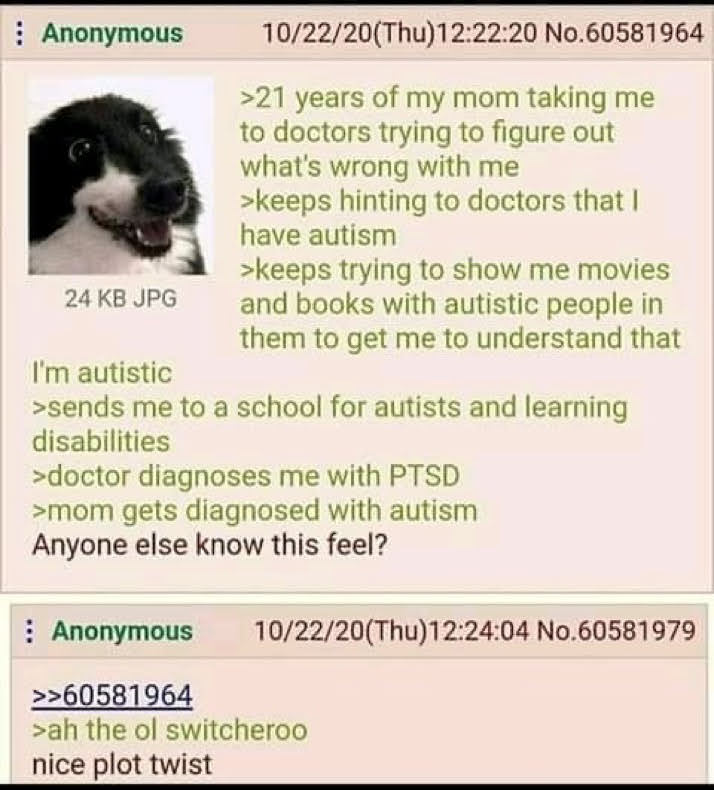- Yep! I've put that into practice. Sick of giving everyone the benefit of the doubt. I think I used to give it a lot because I thought I needed it a lot due to my autistic traits missing social cues and whatever implications people took from my statements/behaviors. Lately, I've recognized that a lot of what I thought were the impact of my aloof behaviors were actually others shaming me. Previously, I would just assume I messed up and would try to learn social rules from it. Now, I'm at the point that if I say something and someone took it wrong, we can address it collaboratively. But if I'm the one that is expected to make changes to accommodate their perception rather than negotiating a happy middle in which we both make changes, then forget it. I'm not going to be the one that is automatically "wrong" whenever there is a disagreement.
- Yes!! I learned the acronym ABB: Always Believe Behavior. If someone says something but behaves differently, the behavior is the truth.
- I've been working on something similar. Basically, I'm tired of people telling me what I mean and more importantly, what my intentions are or why I do things. Thinking back to the people I remember using that phrase often, those people ended up being unbearable to me. Eventually, I would just stay quiet to avoid them taking anything the wrong way, which meant I would stop existing. Sucks I went through all of that, but at least I learned how to use I-statements well!
- And "you're too sensitive!" lol. I seriously want a shirt on it that says "I'm too sensitive" to wear it like a badge of honor.
- That doesn't seem like something that would work well with my style of interaction, but I appreciate the example. I rarely talk through implication unless I'm making a ridiculous joke. Aside from underplaying my feelings and experiences, I think I am very direct. So, if someone is asking me, "So you are saying...?" then there is a major disconnect in communication, or we're back to that "putting words in my mouth" crap. Either way, if that happens infrequently, then it might be tolerable. If it's a routine thing, then there's no need to maintain that relationship.
- In the past, I would fawn when I noticed competitiveness hoping that their "win" would cause them to stop it, but I've learned that more often than not, they're never satisfied. The point isn't to win. It's to dominate. I've done a lot better with combative environments in the past year, so I'm happy with that progress. While I've learned to reject combative situations, I have still stayed in for longer than I should have in competitive ones. I'm working on leaving those situations much quicker now though. Lately, I've been immersing myself in situations that are collaborative or at the least, understanding. There's definitely a different feel to it. It's much nicer and enjoyable. The competitive ones are exhausting.
- Bonus: Hanging around other neurodivergent people has helped me gain perspective by seeing how people treat them. It's a lot easier for me to see toxic and manipulative behaviors happen from a 3rd person perspective. Once I see it, then it's easier to recognize when it's happening to me in 1st person. Bonus from bonus: helps me have a lot of compassion for myself.
- Thank you, and you too! I appreciate the conversation. I hope you have a nice week also.
